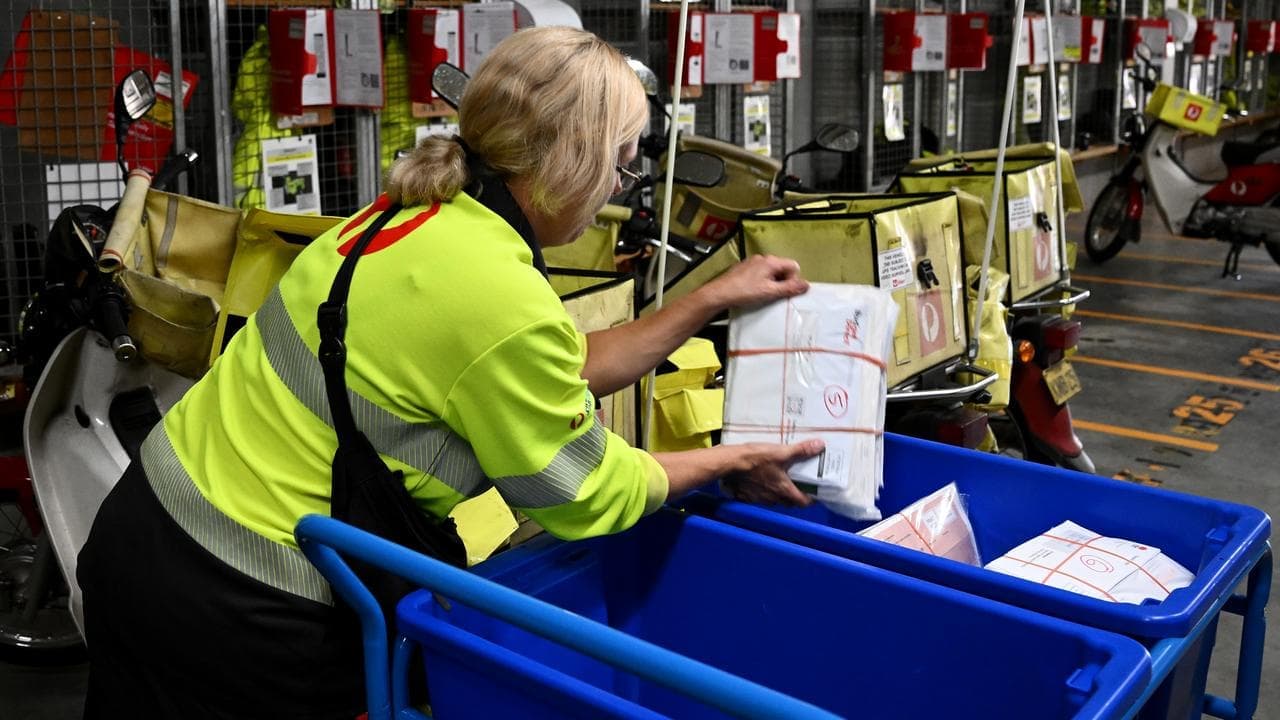WHAT WAS CLAIMED
Maori groups with a customary marine title (CMT) can block beach access and prevent fishing by declaring an area a sacred site or making a “stay away” order.
OUR VERDICT
Misleading. Groups cannot just declare a sacred site area, they must apply through the courts or negotiate with the government and meet certain criteria, while “stay away” orders are unrelated to CMTs.
AAP FACTCHECK - New Zealand Maori groups holding a customary marine title can block public access to beaches and prevent fishing by simply declaring an area a sacred site or making a "stay away" order, a widely shared social media post claims.
This is misleading. Maori groups with a customary marine title must apply to the government or the courts to be able to designate an area as a sacred site, known as a wahi tapu.
They must meet certain requirements, and they cannot simply declare one. Also, "stay away" orders, known as rahui, are unrelated to these titles.
Customary marine titles (CMTs), established by the Marine and Coastal Area (Takutai Moana) Act in 2011, recognise the relationship Maori groups have with marine and coastal areas.
A Maori group, also known as an iwi, may apply for a title if they hold the area in accordance with Maori culture and can prove they've exclusively used and occupied it from 1840, or used it from the time of a customary transfer after 1840 to present day, without substantial interruption.
These titles give various powers to holders, including a say over certain activities in the waters and ownership of certain minerals.
The issue has been hotly contested following a Court of Appeal ruling in October 2023 which lowered the threshold for their approval. The NZ government announced in July 2024 it would override the court's ruling.
 Sacred site applications need to be approved via the government or courts. (Mark Baker/AP PHOTO)
Sacred site applications need to be approved via the government or courts. (Mark Baker/AP PHOTO)
The titles have garnered headlines in NZ in recent weeks, largely due to opposition from a lobby group called Hobson's Pledge.
The wording of the widely shared social media post is from a piece written by the group's founder, former NZ politician Don Brash.
The article features various claims, notably about supposed powers to restrict public access.
"Once an iwi has a CMT they need only declare a rahui (order to stay away) or wahi tapu (place of special/sacred importance) in order to prevent access to a beach or marine area," Mr Brash says.
The group made a similar claim in a two-page advertisement in the New Zealand Herald in August.
When asked for evidence to support the claim, Hobson's Pledge pointed AAP FactCheck to the website of the Te Arawhiti, Office for Maori Crown Relations, which states that title holders have the right to "seek recognition" of sacred areas "and restrict access if this is necessary".
A sacred place, or wahi tapu, is an area of traditional, spiritual, religious, ritual or mythological significance. Maori groups can apply to designate an area as a sacred site alongside their CMT application, or after they've been granted a title.
Dr Carwyn Jones, honorary adjunct professor at the School of Maori Studies at the Victoria University of Wellington, said it was wrong that groups could simply "declare" an area a sacred place.
He said that "the test for CMT is a hard one to reach" to begin with. He added that there's an additional test to designate a sacred site, as stated in section 78 of the act, and that there's a high threshold for such an order.
"There's an additional standard of proof. You have to provide evidence that this is a sacred site, you have to set out the particular area that it covers, the restrictions that apply to that particular sacred site, and what are the reasons for that," Dr Jones said.
Sacred sites, like title applications, would need to be approved through the courts or negotiation with the government, he said.
He added that such orders are only available for specific locations, not entire CMT areas.
 Maori groups must apply to designate an area as sacred, they cannot simply 'declare' it. (Alan Lee/AAP PHOTOS)
Maori groups must apply to designate an area as sacred, they cannot simply 'declare' it. (Alan Lee/AAP PHOTOS)
Professor Elizabeth Macpherson, from the University of Canterbury's law faculty, agreed the claim wasn't accurate.
She pointed to section 11 of the legislation which states no person "is capable of owning, the common marine and coastal area".
She also pointed to section 79(2) which states that the conditions of a sacred place designation cannot prevent fishers from taking their lawful fishing entitlement.
The Office for Maori Crown Relations told AAP FactCheck that if a sacred place is granted, "the public's access to these limited wāhi tapu areas may be able to be restricted" if the relevant tests are met, though "in practice these areas are likely to be small."
The social media post also claims groups can block access by declaring a stay away order, or rahui.
When asked for evidence, Hobson's Pledge told AAP FactCheck these orders are not specific to CMTs.
Dr Jones said they're a traditional order put in place to protect the community, such as after a drowning.
He said they aren't legally binding, but people often respect them as they're not permanent.
The NZ government doesn't legally enforce rahui except if an order is escalated to a temporary fishing closure under the Fisheries Act, he added.
Aside from these temporary fishing bans, the declaration of rahui doesn't legally prevent access.
 'Stay away' orders aren't typically legally binding. (Mark Baker/AP PHOTO)
'Stay away' orders aren't typically legally binding. (Mark Baker/AP PHOTO)
The social media post makes several other claims about the power of CMTs.
It states that "every commercial operation on New Zealand's coast will have to pay" Maori groups "to be able do their business."
As evidence, Hobson's Pledge told AAP FactCheck the legislation "doesn't prevent" customary marine title holders from charging commercial operations under section 52.
The relevant section states "a protected customary rights group may…derive a commercial benefit from exercising its protected customary rights…"
Dr Jones said "protected customary rights" relate to a traditional practice or activity such as gathering shells, driftwood or stones.
As such, a group with protected customary rights within a CMT could make money from, for example, selling shells that have been collected.
He said these rights require a separate application to CMTs.
Dr Macpherson said there's no specific provision for paying fees to Maori groups in the legislation.
She added that section 64 provides for "accommodated activities" to continue despite a declaration of CMT, and that section 28 states lawful fishing rights are preserved.
However, CMT holders do have the power to veto new resource consents, as is also stated in the post.
With a few exceptions, those seeking resource consent will require the written permission of the CMT holders to gain approval.
With most CMT applications still going through the court process, experts say it's unclear exactly how this will manifest.
Hobson's Pledge also cited the Tūwharetoa case, where the High Court found a local Maori group could charge for commercial activities on Lake Taupō, as evidence that every commercial operator would need to pay.
 Lawful fishing rights are preserved in CMT areas. (Tracey Nearmy/AAP PHOTOS)
Lawful fishing rights are preserved in CMT areas. (Tracey Nearmy/AAP PHOTOS)
Dr Jones said the case is a "completely different situation" to CMTs as it relates to a lake, so it's separate to the 2011 act which established the titles.
But the post is correct to claim that CMT holders have a say over new conservation activities in the specified area.
The post is also correct that CMT holders gain ownership of minerals within the area, other than petroleum, gold, silver and uranium. Section 83 of the act specifies a CMT group "has, and may exercise, ownership" of minerals within the area.
The post also features a map of NZ with a red outline, showing areas of the coastline currently subject to CMT applications.
"Almost the ENTIRE coast of New Zealand would be claimed by [Maori groups] either through the courts or by direct negotiation with the Crown," the post reads.
The map is accurate, with the Takutai Moana data portal website displaying a similar-looking map featuring current applications.
However, Dr Macpherson said "the ability to make a claim doesn't necessarily mean that title will be granted," and described the legal and evidential requirements as onerous.
The Verdict
Misleading – The claim is accurate in parts but information has also been presented incorrectly, out of context or omitted.
AAP FactCheck is an accredited member of the International Fact-Checking Network. To keep up with our latest fact checks, follow us on Facebook, Twitter and Instagram.












